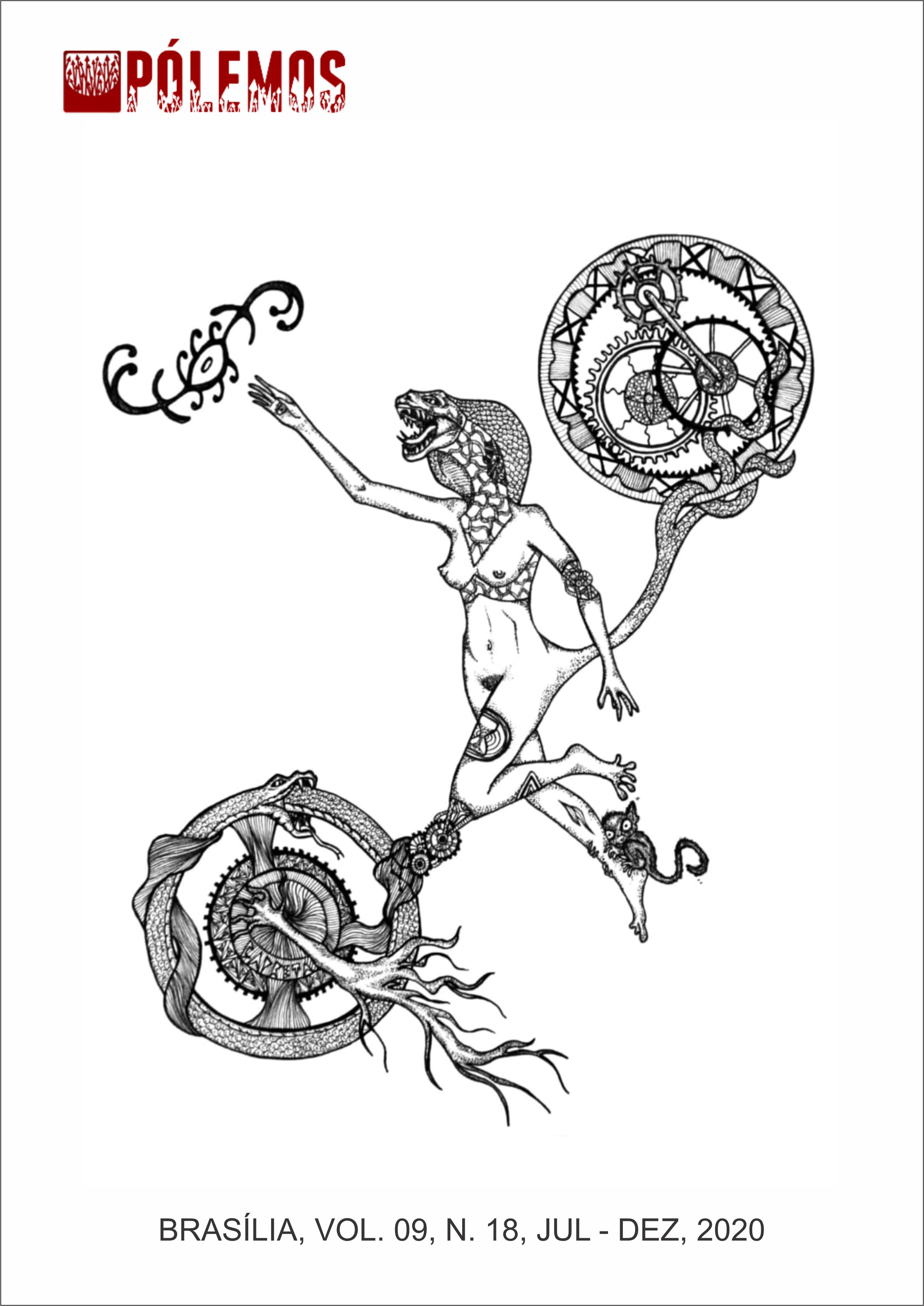DELEUZE E A TERCEIRA CRÍTICA
DOI:
https://doi.org/10.26512/pl.v9i18.26901Palabras clave:
Deleuze. Kant. Estética. Ideias.Resumen
O presente trabalho se debruça sobre a relação entre Deleuze e Kant a partir da interpretação que o primeiro realiza da estética do segundo. Apesar de Deleuze descrever Kant como seu inimigo, temos na sua obra uma reapropriação de diversos elementos da filosofia crítica kantiana. Deleuze critica Kant por ter pressuposto um senso comum como condição do acordo das faculdades em todas as três críticas e de ter cindido a estética em dois domínios: sensibilidade e criação. O que pretenderemos demonstrar neste artigo é que a partir da sua leitura da Crítica da Faculdade de Julgar, Deleuze encontra os elementos de uma reversão interna do kantismo que ele própria radicaliza em sua filosofia de forma a reunir os dois sentidos de estética em um acordo discordante entre as faculdades.
Descargas
Citas
ALLISON, H. Kant’s Transcendental Idealism: an Interpretation and Defense. New Haven/Londres: Yale University Press, 2004.
BRYANT, L. Difference and Giveness: Deleuze's Transcendental Empirism and Ontology of Immanence. Evanston: Northwestern University Press, 2008.
DELEUZE, G. Proust et les signes. 2 ed. Paris: PUF, 1998.
_____________. Diferença e repetição. Trad. Luiz Orlandi e Roberto Machado. Lisboa: Relógio d’Água, 2000.
_____________. A filosofia crítica de Kant. Trad. Germiniano Franco. Lisboa: Edições 70, 2001.
_____________. O método da dramatização. In: DELEUZE, G. A ilha deserta e outros textos. Trad. Christian Pierre Kasper. São Paulo: Editora Iluminuras, 2004a. p. 65-85.
_____________. A ideia de gênese na estética kantiana. In: DELEUZE, G. A ilha deserta e outros textos. Trad. Christian Pierre Kasper. São Paulo: Editora Iluminuras, 2004b. p. 112-140.
_____________. Sobre quatro fórmulas poéticas que poderiam resumir a filosofia kantiana. In: _____. Crítica e clínica. 2 ed. Trad. Peter Pál Pelbart. São Paulo: Editora 34, 2011. p. 40-51.
_____________. Conversações. 3 ed. Trad. Peter Pál Pelbart. São Paulo: Editora 34, 2013.
_____________. Nietzsche e a filosofia. Trad. Luiz dos Santos e Ivo Benedicto. Rio de Janeiro: Editora Rio, 2017.
HUGHES, J. Philosophy after Deleuze: Deleuze and the Genesis of Representation II. Londres/Nova York: Bloomsbury, 2012.
KANT, I. Crítica da razão pura. Trad. Manuel Pintos dos Santos e Alexandre Mourão. Lisboa: Fundação Calouste Gulbenkian, [1781/1787] 2001.
________. Crítica da faculdade de julgar. Trad. Fernando Costa Matos. Petrópolis: Editora Vozes, [1790] 2016.
KERSLAKE, C. Immanence and the Vertigo of Philosophy. Edimburgo: Edinburgh University Press, 2009.
LAPOUJADE, D. Deleuze: os movimentos aberrantes. 2 ed. Trad. Laymert Garcia dos Santos. São Paulo: N-1 Edições, 2015.
LORD, B. Deleuze and Kant’s Critique of Judgment. In: LUNDY, C.; DANIELA, V. (Eds.) At the Edges of Thought: Deleuze and Post-Kantian Philosophy. Edimburgo: Edinburgh University Press, 2015. p. 85-105.
MAIMON, S. Essay on Transcendental Philosophy. Trad. Nick Midgley, Henry Somers-Hall, Allistair Welchman e Merten Reglitz. Nova York: Continuum International Publishing, 2010.
SHAVIRO, S. Whithout Criteria: Kant, Whitehead, Deleuze and Aesthetics. Londres: MIT Press, 2009.
STENGERS, I. No tempo das catástrofes: resistir à barbárie que se aproxima. Trad. Eloisa Araújo Ribeiro. São Paulo: Cosac Naify, 2015.
TOSCANO, A. The Theatre of Production: Philosophy and Individuation between Kant and Deleuze. Basingstoke: Palgrave Macmillan, 2006.
VOSS, D. Conditions of Thought: Deleuze and the Transcendental Ideas. Edimburgo: Edinburgh University Press Ltd., 2013.
Descargas
Publicado
Cómo citar
Número
Sección
Licencia
Derechos de autor 2020 PÓLEMOS ”“ Revista de Estudantes de Filosofia da Universidade de Brasília

Esta obra está bajo una licencia internacional Creative Commons Atribución-NoComercial-SinDerivadas 4.0.
Todos os trabalhos que forem aceitos para publicação, após o devido processo avaliativo, serão publicados sob uma licença Creative Commons, na modalidade Attribution-NonCommercial-NoDerivatives 4.0 International Public License (CC BY-NC-ND 4.0). Esta licença permite que qualquer pessoa copie e distribua a obra total e derivadas criadas a partir dela, desde que seja dado crédito (atribuição) ao autor / Ã autora / aos autores / às autoras.


